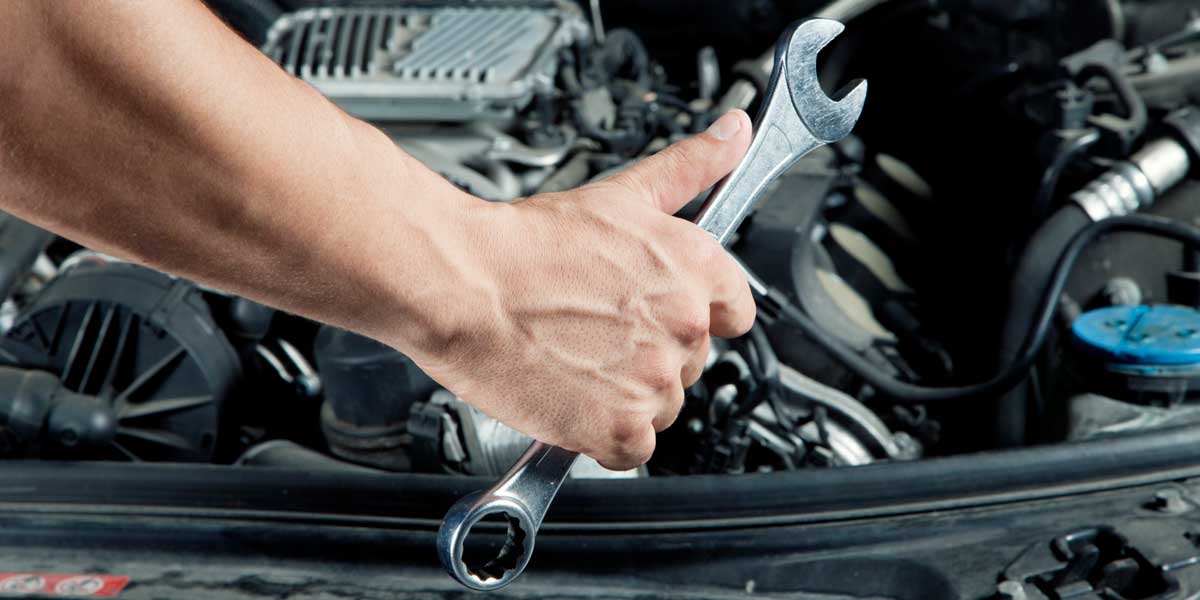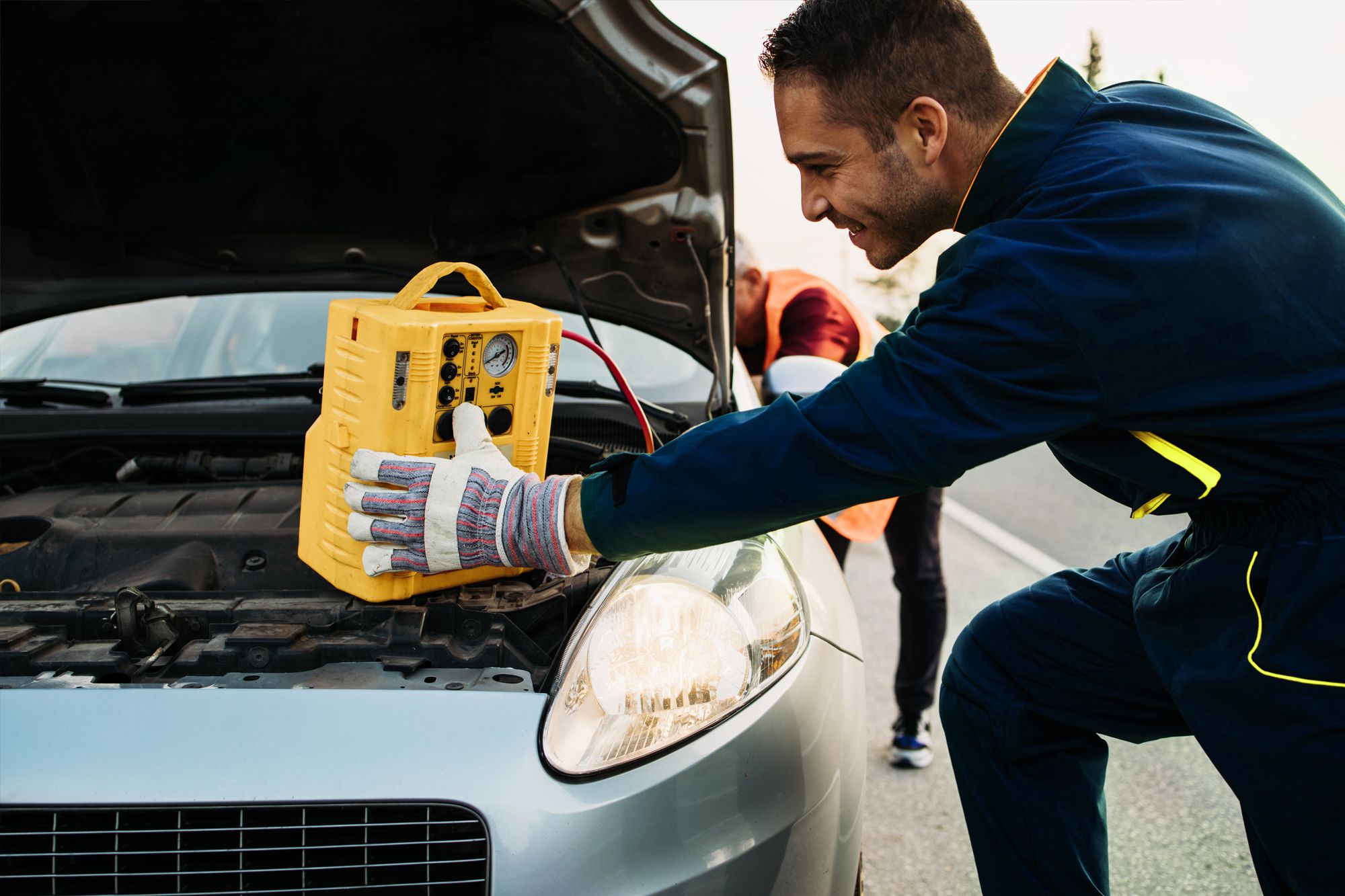All Categories
Featured
When your auto begins to overheat, it can be a stressful and frightening circumstance. Nonetheless, comprehending exactly how to react in these minutes and taking actions to prevent future getting too hot can aid shield your lorry and stay clear of pricey repair work. Below's what to do if your automobile overheats and just how to avoid it from taking place again.
What to Do If Your Auto Gets too hot. Draw Over and Switch Off the Engine The initial point you ought to do if your vehicle begins to overheat is to pull over to a safe area, such as a parking area or the shoulder of the roadway. Transform off the engine right away to stop additional damages. Running an overheated engine can cause permanent damage to the internal components, consisting of the radiator and cyndrical tube heads.
Enable the Engine to Cool Down After switching off the engine, give it time to cool down. Opening the hood can assist release heat, however beware as the engine and bordering locations may still be extremely warm. Wait a minimum of 15-20 minutes before attempting any kind of additional actions.
Inspect the Coolant Degree Once the engine has cooled, inspect the coolant level. If it is low, you can add coolant or water to the radiator or coolant storage tank. Nonetheless, never open up the radiator cap while the engine is warm, as this could create warm coolant to spray and burn you. Constantly wait till the engine is trendy prior to opening the cap.
Evaluate for Leaks or Damaged Hoses While you are examining the coolant level, check for any visible leaks or damaged hoses under the hood. Broken or damaged hoses can create coolant to leak out, causing a getting too hot engine. You may require to call for roadside aid or a tow to obtain the automobile to a mechanic. if you detect any kind of concerns.
Call for Help If you can not determine the source of the problem or the overheating continues after topping off the coolant, it's finest to ask for roadside assistance. Driving with an overheated engine can cause serious damage to your vehicle and leave you stranded.
![]()
How to stop Your Automobile from Getting too hot. Check Coolant Degrees Frequently One of the major reasons of overheating is reduced coolant degrees. If needed, make it a habit to inspect your coolant levels on a regular basis and top them off. Refer to your vehicle's guidebook for the advised coolant mixture and maintenance periods.
Examine Your Radiator Your radiator plays a crucial duty in keeping the engine cool. Guarantee there are no obstructions or debris obstructing airflow through the radiator. If your radiator is clogged or harmed, it might not operate properly, causing getting too hot.
Maintain Your Air conditioning System The cooling down system ought to be purged and replenished regularly. With time, coolant can come to be infected or shed its performance. Follow the maker's suggestions for purging the system, usually every 30,000 to 50,000 miles.
Monitor the Thermostat and Water Pump The thermostat manages the temperature level of the engine, while the water pump circulates coolant via the engine. If either of these elements stops working, it can create the engine to get too hot. Have your technician examine the thermostat and water pump during routine maintenance.
Stay Clear Of Straining the Lorry Overloading your car, particularly on long trips or warm days, can stress the air conditioning and the engine system. Bear in mind your vehicle's weight restrictions and try to stay clear of bring hefty tons, specifically when driving in severe temperature levels.
Drive with Care Aggressive driving, such as speeding or fast velocity, can enhance engine stress and anxiety and warmth production. Reduce, especially on warm days or when driving up steep slopes, to reduce the threat of overheating.
![]()
Conclusion. Recognizing what to do if your vehicle overheats can stop further damage to your engine and assist you manage the scenario safely. By consistently examining your coolant levels, examining the radiator and hoses, and preserving the cooling system, you can lower the threat of overheating. With aggressive care and proper maintenance, your automobile will remain in good problem, guaranteeing you remain secure and avoid pricey repair services down the roadway.
What to Do If Your Auto Gets too hot. Draw Over and Switch Off the Engine The initial point you ought to do if your vehicle begins to overheat is to pull over to a safe area, such as a parking area or the shoulder of the roadway. Transform off the engine right away to stop additional damages. Running an overheated engine can cause permanent damage to the internal components, consisting of the radiator and cyndrical tube heads.
Enable the Engine to Cool Down After switching off the engine, give it time to cool down. Opening the hood can assist release heat, however beware as the engine and bordering locations may still be extremely warm. Wait a minimum of 15-20 minutes before attempting any kind of additional actions.
Inspect the Coolant Degree Once the engine has cooled, inspect the coolant level. If it is low, you can add coolant or water to the radiator or coolant storage tank. Nonetheless, never open up the radiator cap while the engine is warm, as this could create warm coolant to spray and burn you. Constantly wait till the engine is trendy prior to opening the cap.
Evaluate for Leaks or Damaged Hoses While you are examining the coolant level, check for any visible leaks or damaged hoses under the hood. Broken or damaged hoses can create coolant to leak out, causing a getting too hot engine. You may require to call for roadside aid or a tow to obtain the automobile to a mechanic. if you detect any kind of concerns.
Call for Help If you can not determine the source of the problem or the overheating continues after topping off the coolant, it's finest to ask for roadside assistance. Driving with an overheated engine can cause serious damage to your vehicle and leave you stranded.

How to stop Your Automobile from Getting too hot. Check Coolant Degrees Frequently One of the major reasons of overheating is reduced coolant degrees. If needed, make it a habit to inspect your coolant levels on a regular basis and top them off. Refer to your vehicle's guidebook for the advised coolant mixture and maintenance periods.
Examine Your Radiator Your radiator plays a crucial duty in keeping the engine cool. Guarantee there are no obstructions or debris obstructing airflow through the radiator. If your radiator is clogged or harmed, it might not operate properly, causing getting too hot.
Maintain Your Air conditioning System The cooling down system ought to be purged and replenished regularly. With time, coolant can come to be infected or shed its performance. Follow the maker's suggestions for purging the system, usually every 30,000 to 50,000 miles.
Monitor the Thermostat and Water Pump The thermostat manages the temperature level of the engine, while the water pump circulates coolant via the engine. If either of these elements stops working, it can create the engine to get too hot. Have your technician examine the thermostat and water pump during routine maintenance.
Stay Clear Of Straining the Lorry Overloading your car, particularly on long trips or warm days, can stress the air conditioning and the engine system. Bear in mind your vehicle's weight restrictions and try to stay clear of bring hefty tons, specifically when driving in severe temperature levels.
Drive with Care Aggressive driving, such as speeding or fast velocity, can enhance engine stress and anxiety and warmth production. Reduce, especially on warm days or when driving up steep slopes, to reduce the threat of overheating.

Conclusion. Recognizing what to do if your vehicle overheats can stop further damage to your engine and assist you manage the scenario safely. By consistently examining your coolant levels, examining the radiator and hoses, and preserving the cooling system, you can lower the threat of overheating. With aggressive care and proper maintenance, your automobile will remain in good problem, guaranteeing you remain secure and avoid pricey repair services down the roadway.
Latest Posts
Seamless Light Weight Aluminum Gutters: The Smart Choice for Your Home
Published May 28, 25
1 min read
Shield Your Home with Quality Residential Roof Covering
Published May 24, 25
1 min read
How Chicago Drivers Prefer Montclare Auto Repair for Reliable Service and Great Savings
Published May 23, 25
1 min read
More
Latest Posts
Seamless Light Weight Aluminum Gutters: The Smart Choice for Your Home
Published May 28, 25
1 min read
Shield Your Home with Quality Residential Roof Covering
Published May 24, 25
1 min read
How Chicago Drivers Prefer Montclare Auto Repair for Reliable Service and Great Savings
Published May 23, 25
1 min read